Chinese Words Are So Easy They Doubled Up
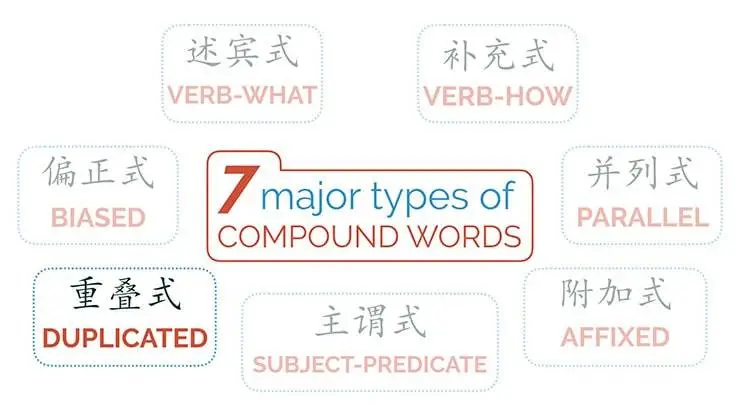
Word Structure: “Duplicated” 重叠式
This is part 7 “Duplicated Chinese Characters” of an 8-part series exploring all 7 types of Chinese compound words. Click below for the other parts:
Part 1 – Part 2 – Part 3 – Part 4 – Part 5 – Part 6 – Part 7 – Part 8
Duplicated 重叠式 Chinese Characters
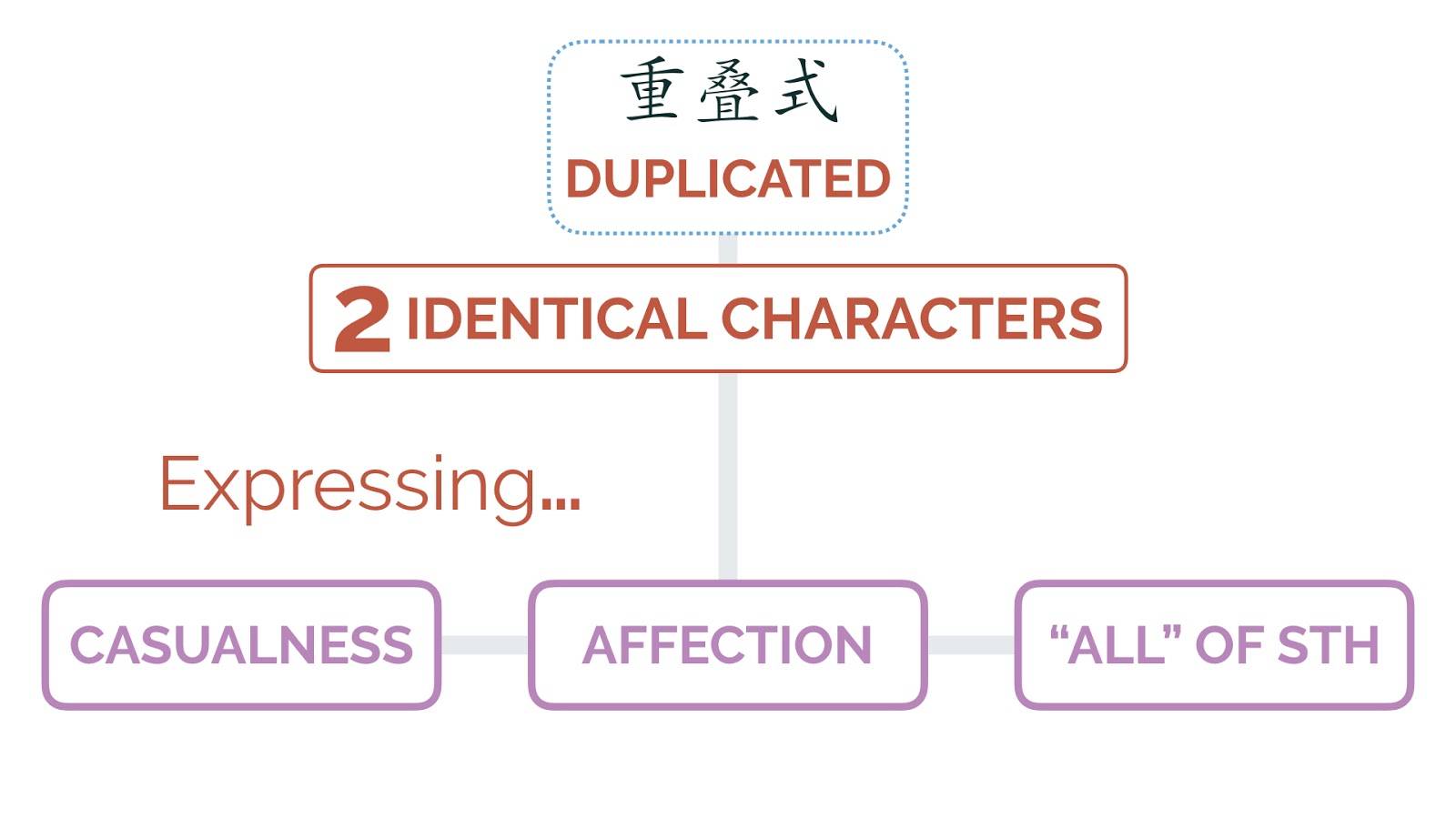
Duplicated words are the easiest to understand; they are merely two morphemes that are the same doubled up. That said, the doubling of the morpheme can serve four different functions:
- Showing familiarity or affection
- Indicated “all of” something
- Expressing Casualness
- Adverbs
Familiarity or Affection
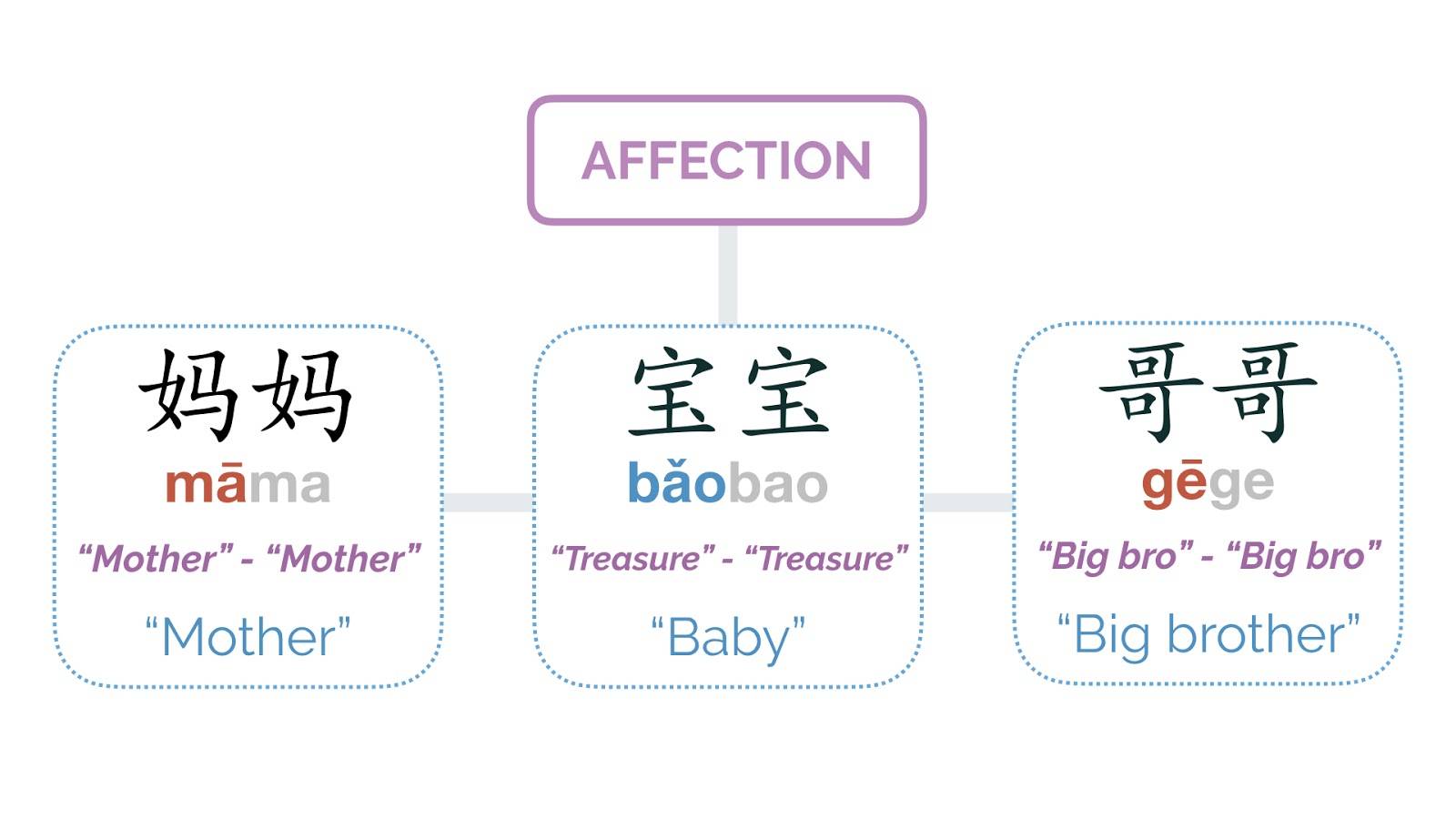
It shouldn’t be surprising that words expressing “familiarity” include most of the “family” related words. Note: The vast majority (if not all) of this type of duplicated Chinese Characters end in a 5th tone.
妈妈 māma – Mother
爸爸 bàba – Father
姐姐 jiějie – Older Sister
妹妹 mèimei – Younger Sister
哥哥 gēge – Older Brother
弟弟 dìdi – Younger Brother
太太 tàitai – Wife
奶奶 nǎinai – Paternal Grandmother
爷爷 yéye – Paternal Grandfather
姥姥 lǎolao – Maternal Grandmother (mostly a Northern dialect)
公公 gōnggong – Maternal Grandfather (rarely used anymore)
叔叔 shūshu – Uncle- Father’s brother
舅舅 jiùjiu – Uncle- Mother’s brother
宝宝 bǎobao – Baby
Indicating “All” Of Something
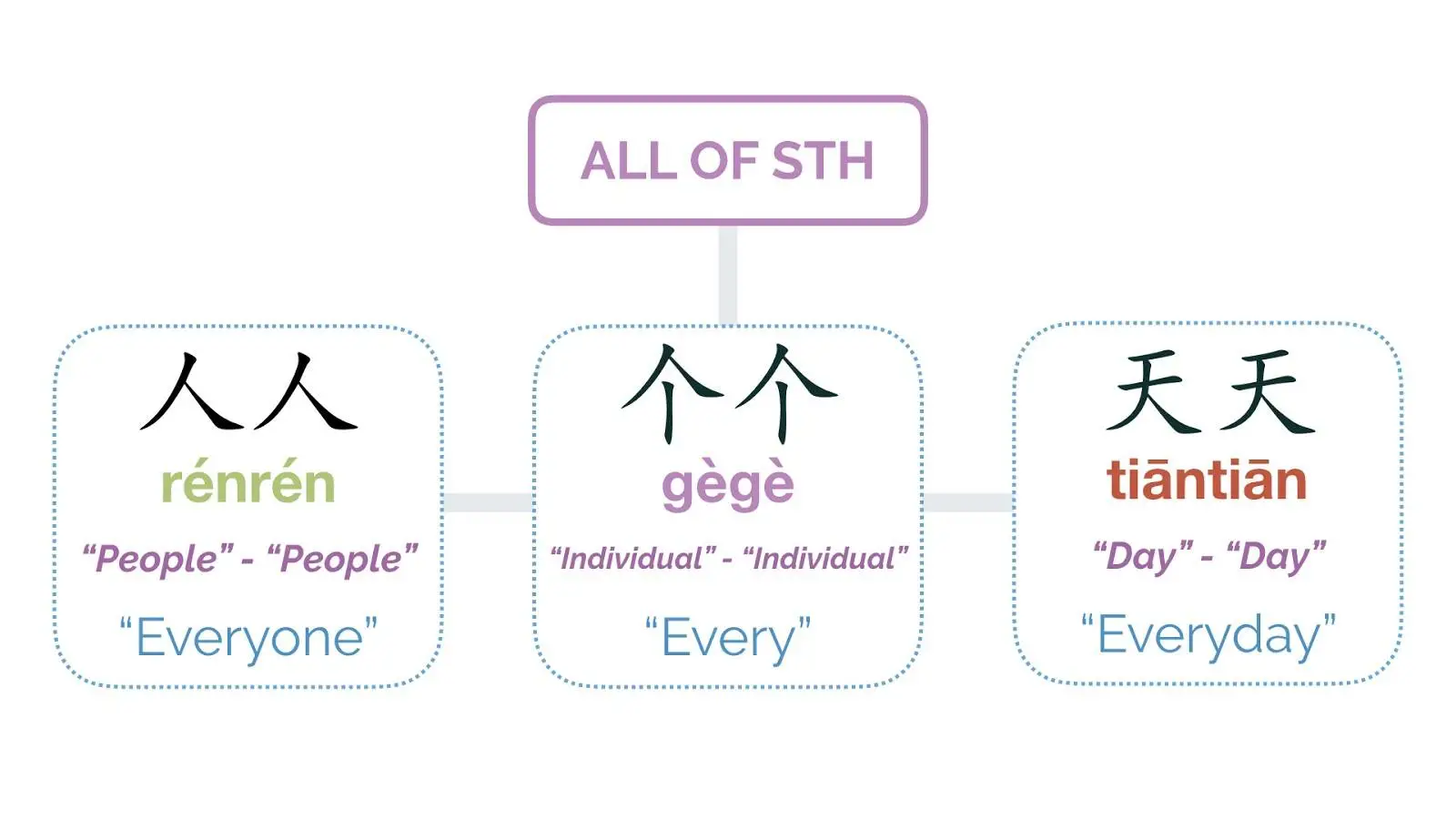
人 means “a person”, so 人人 means “every person.” These can apply to people, places, time, or measure words. For measure words, the noun the measure word applies to goes right after (examples below). Note: The majority of duplicated Chinese Characters that are expressing “all” of something do not end in the 5th tone.
人人 rénrén – Everyone
家家 jiājiā – All households
天天 tiāntiān – Every day
年年 niánnián – Every year
月月 yuèyuè – Every month
岁岁 suìsuì – Every year (of one’s life)
Duplicated Chinese Characters – Measure Words
个个 gègè + Noun
Every + [noun that has 个 as a measure word, e.g. “room” 房间 fángjiān]
个个房间都非常干净 “Every room is very clean”
条条 tiáotiáo + Noun
Every + [noun that has 条 as a measure word, e.g. “road” 路 lù]
条条大路都通罗马 All roads lead to Rome
张张 zhāngzhāng + Noun
Every + [noun that has 张 as a measure word, e.g. “table” 桌子 zhuōzi]
张张桌子都需要人过来擦干净 All the tables need someone to come over and wipe them clean
Expressing Casualness
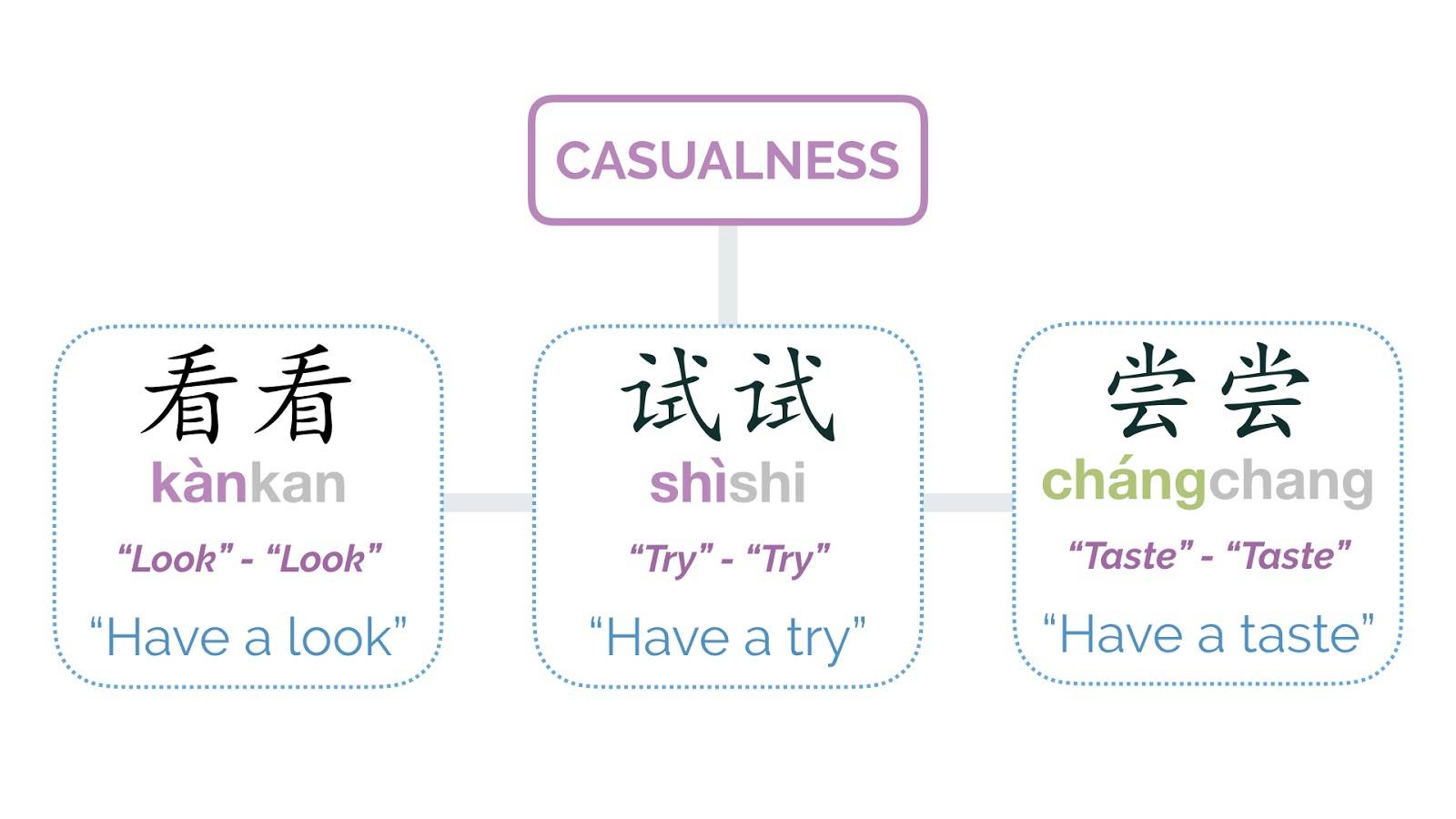
Duplicated Chinese Characters that express casualness are usually verbs. They indicate that doing the verb is a light suggestion or otherwise not a big deal.
看看 kànkan – Have a look
试试 shìshi – Try for a moment
说说 shuōshuo – Speak for a moment
尝尝 chángchang – Have a taste
Duplicated Chinese Characters – Adverbs
Duplicated Chinese Characters that function as adverbs are super useful. They function just like any other Chinese adverb.
慢慢 mànmàn – Slowly
快快 kuàikuài – Quickly
白白 báibái – In vain, to no purpose, for nothing
好好 hǎohāo – Thoroughly
常常 chángcháng – Often, frequently
明明 míngḿíng – Clearly, evidently
Learn how to pronounce and also learn Chinese characters for free with our 14-day free trial giving you full access to our entire curriculum.
You will be able to read, write and pronounce Chinese characters and get an overall “plan of attack” for your ENTIRE Chinese journey all the way to fluency and literacy.








